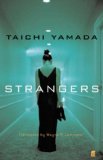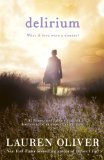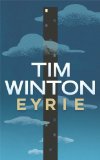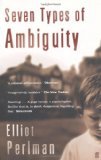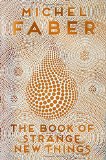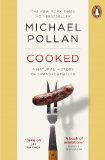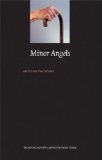 Translated from the French by Jordan Stump
Translated from the French by Jordan Stump
Five words from the blurb: postcataclysmic, immortal, angels, avenging, dark
I bought a copy of Minor Angels after seeing several people (I’m afraid I can’t remember who) raving about it on Twitter. I can see why the book is highly regarded, but my opinion of it is very mixed.
Minor Angels is set in a postcataclysmic world and revolves around a nursing home where all of the residents appear to be immortal. It is narrated by 49 different angels, each given their own chapter (or narract, as the author likes to refer to them).
The book could be described in two ways:
- A masterpiece, which reveals more with every reading.
- An confusing, impenetrable piece of work.
I can’t decide which it is! The writing was outstanding and individual scenes were dazzlingly vivid, but I struggled to understand the overall concept. Each chapter was so short that the book felt fragmented and I failed to see many links between the narracts. Volodine states that the connections will only become obvious in the dreams of the reader; but I’m unlikely to dream about it so it remains a mystery to me!
I loved the imagery of the book and admired the portrayal of the angels:
A dense arch took shape over me, formed of warm breath and arthritic hands and coarse, rutted faces. The intermingled fabrics whirled this way and that, the dust wheeled from one mouth to the other. Their words described the state of things after and before the world revolution, pelting me like falling hail. I took all this in, all these sentences, all those gutturals recounting a universal disaster, and, second by second, my understanding of the situation grew.
It all felt incredibly realistic. It’s just a shame that I failed to understand the overall concept as I’m sure a lot of the wisdom was lost on me.
Recommended to those who enjoy piecing together the symbolism in a complex set of texts.

.

